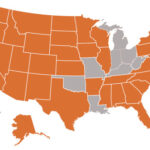In a significant move to protect gig economy workers, the Consumer Financial Protection Bureau (CFPB) has filed a lawsuit against retail giant Walmart and fintech firm Branch Messenger. The lawsuit alleges that Walmart and Branch illegally compelled delivery drivers to use costly, unauthorized bank accounts to receive their earnings, deceiving them about access to their pay and draining millions in junk fees. This action highlights the ongoing scrutiny of worker payment practices in the rapidly expanding gig economy and underscores the CFPB’s commitment to safeguarding workers’ financial rights.
The CFPB’s complaint, filed today, details how Walmart, through its Spark Driver program, and Branch, its financial technology partner, enrolled drivers in Branch accounts without their explicit consent. These accounts became the default payment method for drivers, who were allegedly misled about the terms and faced threats of termination if they refused to use them. This mandate effectively removed drivers’ choice in how they received their pay and forced them into a financial system that allegedly benefited Walmart and Branch at the expense of the workers.
CFPB Director Rohit Chopra stated, “Walmart made false promises, illegally opened accounts, and took advantage of more than a million delivery drivers. Companies cannot force workers into getting paid through accounts that drain their earnings with junk fees.” This strong statement emphasizes the CFPB’s stance against practices that exploit workers through mandatory and fee-laden payment systems.
Allegations of Illegal Account Openings and Deceptive Practices
The lawsuit outlines several key violations of federal law allegedly committed by Walmart and Branch over approximately two years, starting in 2021. A central allegation is the illegal opening of accounts. According to the CFPB, Walmart and Branch accessed drivers’ personal information, including Social Security numbers, to create Branch accounts without obtaining proper authorization. Drivers’ earnings were then directly deposited into these accounts, essentially locking their pay within the Branch system. To access their own wages, drivers were compelled to agree to Branch’s terms and conditions, effectively making the unauthorized account opening a prerequisite for getting paid. Walmart allegedly reinforced this system by threatening termination for drivers who resisted using Branch accounts.
Furthermore, the CFPB accuses Walmart and Branch of deceptive practices regarding drivers’ access to their earnings. Despite promises of “instant access” to pay through Branch Accounts, many drivers encountered delays and complexities in accessing their funds. Critically, drivers who needed to transfer their earnings to their preferred bank accounts incurred over $10 million in junk fees. These fees, levied for instant transfers, significantly reduced drivers’ take-home pay and represent a substantial financial burden imposed on the workforce. Branch is also accused of further illegal activities related to consumer accounts, such as failing to properly investigate errors, disregarding stop payment requests, inadequate record-keeping, and failing to provide necessary disclosures, alongside illegally requiring consumers to waive their legal rights.
Enforcement Action and Broader Implications
The CFPB is leveraging its authority under the Consumer Financial Protection Act, which empowers it to act against institutions violating consumer financial protection laws. The lawsuit specifically cites violations of the Truth in Savings Act (TISA), the Electronic Fund Transfer Act (EFTA), and prohibitions against unfair, deceptive, or abusive acts or practices under the Consumer Financial Protection Act (CFPA). Through this enforcement action, the CFPB aims to halt the allegedly unlawful conduct of Walmart and Branch, secure financial restitution for affected drivers, and impose civil penalties. These penalties would contribute to the CFPB’s victims relief fund, designed to compensate consumers harmed by financial misconduct.
This case is part of a broader CFPB initiative to address worker protection in the evolving landscape of work and payments. In October, the CFPB issued guidance concerning the use of third-party consumer reports in employment, emphasizing compliance with the Fair Credit Reporting Act (FCRA). The bureau has also highlighted the growing concern of employer-driven debt and the financial risks workers face when indebted to their employers as a condition of employment. Moreover, this lawsuit marks the CFPB’s first action against a fintech partner of Evolve Bank & Trust concerning a deposit product, signaling increased regulatory scrutiny of fintech partnerships in the banking sector. Previously, the CFPB sued SoLo Funds, another Evolve Bank & Trust fintech partner, in the short-term loan industry. The Federal Reserve Board also recently took enforcement action against Evolve Bank & Trust itself, citing failures in overseeing its fintech partners.
Call to Action for Consumers and Workers
The CFPB encourages consumers to file complaints regarding financial products and services through its website or by phone. Crucially, employees who suspect their companies of violating federal consumer financial protection laws are urged to report information to the CFPB whistleblower program. These avenues for complaint and whistleblowing are essential for ensuring accountability and fostering a fair financial marketplace.
This lawsuit against Walmart and Branch serves as a stark reminder of the regulatory focus on worker financial protections and the potential pitfalls of mandatory, fee-laden payment systems in the gig economy. As the CFPB continues to monitor and enforce consumer financial laws, this case could set a precedent for how companies manage worker payments and ensure fair access to earnings.

